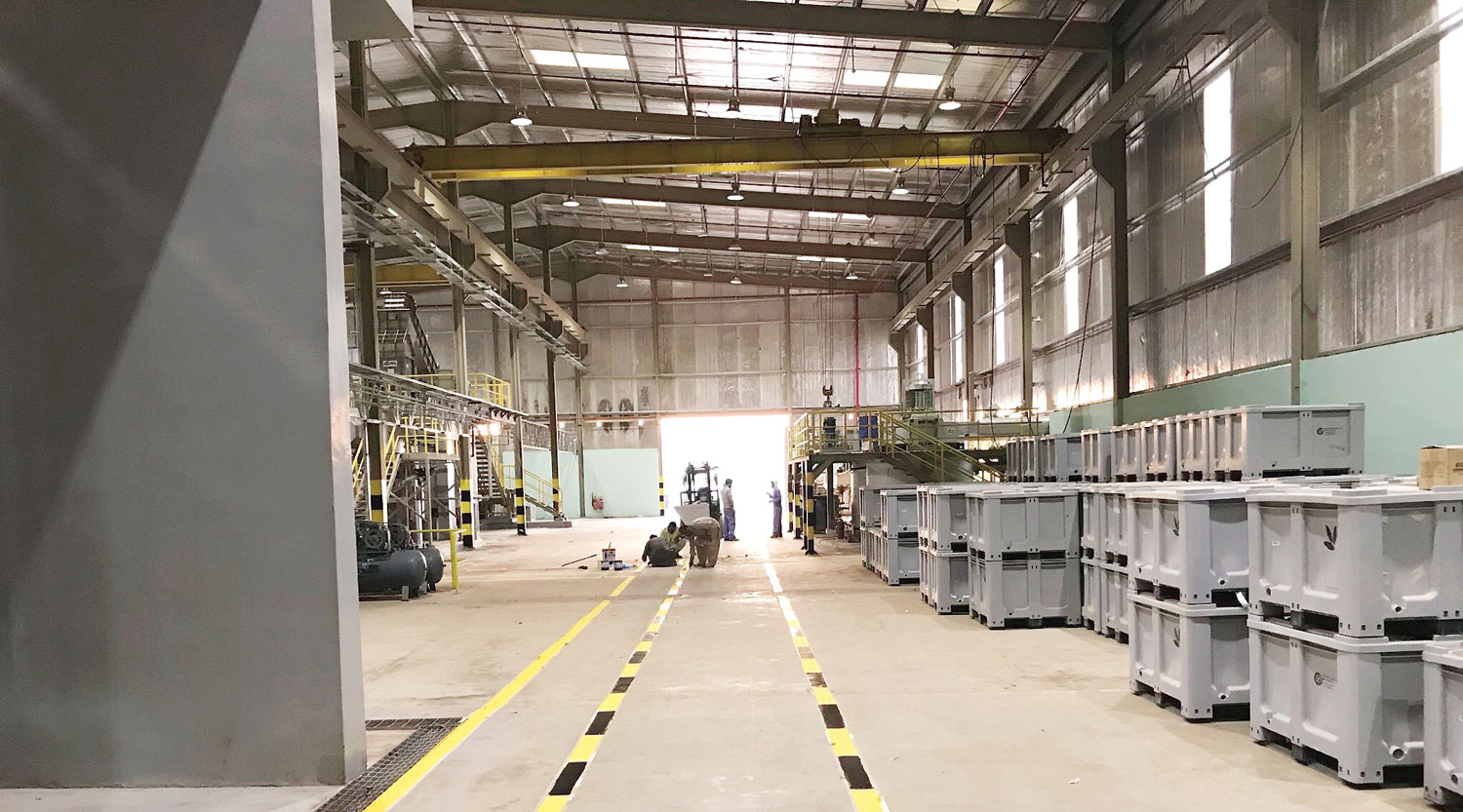

MUSCAT, DEC 2 - Oman’s first lead acid battery recycling project, launched at the Rusayl Industrial Estate in Muscat last week, bodes well for the safe handling and disposal of a waste commodity, large quantities of which have tended to end up in municipal landfills to the detriment of ground aquifers and the local environment. But more than serving as a mere disposal facility, Arab Lead Company LLC’s $13 million state-of-the-art plant is also equipped to extract and reprocess the lead content — a commercially valuable ingredient — of used car and truck batteries and return it into the global supply chain in an environmentally sustainable manner.
Other recyclable components of automotive batteries, including the plastic casing and electrolyte, are salvaged, reprocessed and restored back into the supply chain, thereby providing a near 100 per cent recovery solution with regard to the safe management of potentially harmful lead acid batteries in the Sultanate. Not surprisingly, Be’ah — the wholly government owned solid waste management utility — has welcomed and endorsed this investment. Top officials of Be’ah joined Mohammed bin Salim al Toobi, Minister of Environment and Climate Affairs, at the formal opening of the plant last week. Also in attendance was Mohsen bin Mohammed al Shaikh, Chairman of Muscat Municipality, as well as members of the Municipal Council.
Significantly, the project will be showcased at the Oman Waste & Environmental Services Conference, which was originally due to take place during December 5 – 6, 2017, but is now being rescheduled in light of the back-to-back National Day and Religious holidays coinciding with these dates. Leading event management firm Omanexpo is organising the exhibition and conference under the auspices of Oman Environmental Services Holding Co (Be’ah), among other stakeholders.
With a capacity to handle around 6,000 tonnes of lead acid batteries per annum, the Rusayl plant will serve as a one-stop destination for the estimated one million units of used automotive batteries generated by the Sultanate every year. While part of this output is shipped out of Oman to recycling units elsewhere in the Gulf, a portion is believed to end up in municipal landfills around the country.
Lead acid batteries typically contain toxic chemicals which, in addition to lead, can contribute to soil contamination and also lead poisoning. Arab Lead Company says its one-stop solution encompasses the entire process from collection and processing to smelting and sale of recycled materials — all accomplished in line with internationally recognised standards.
Used batteries arriving at the plant are drained of the acid content, and then stripped into their constituent components including the plates, rubber, plastic containers and sludge. The pure lead from the batteries, comprising the poles and terminals, along with the grids and lead paste dissolved in the electrolyte are subject to smelting and refining, thereby resulting in 99.7 per cent pure lead metal.
“By recycling acid lead batteries we are creating an infinite loop of lead reuse,” the company said. “That means the lead and plastic in the lead-acid battery in your car, truck, boat or motorcycle have been and will continue to be recycled many, many times. This makes lead-acid battery disposal extremely successful from both environmental and cost perspectives,” it added.
Conrad Prabhu
Oman Observer is now on the WhatsApp channel. Click here



